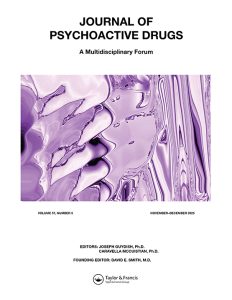- The Hero’s Journey and the Path of Recovery: Integrating Psychedelics into Traditional 12-Step Programs
- Stage One-The Ordinary World: Life in Recovery
- Stage Two-The Call to Adventure: Curiosity About Psychedelics in Recovery
- Stage Three-Refusal of the Call: Fear and Resistance in Psychedelic Exploration
- Stage Four-Meeting the Mentor: Guidance on the Path of Psychedelic Exploration
- Stage Five-Crossing the Threshold: Stepping Into the Unknown with Psychedelics
- Stage Six-Tests, Allies, and Enemies: Navigating Challenges, Stigma, and Antagonistic Views
- Stage Seven-The Approach to the Inmost Cave: Facing Deepest Fears in Psychedelic Exploration
- Stage Eight-The Ordeal: Confronting the Deepest Challenges in Psychedelic Healing
- Stage Nine-The Reward: Gaining Insight and Healing After the Ordeal
- Stage Ten-The Road Back: Integrating the Psychedelic Experience into Daily Life
- Stage Eleven-The Resurrection: Rebirth and Renewal After the Psychedelic Journey
- Stage Twelve-Return with the Elixir: Sharing Wisdom and Healing After the Psychedelic Journey
 In the Hero’s Journey, The Call to Adventure is the moment that sparks the hero’s transformation, inviting them to leave the safety of their ordinary world and embark on a journey into the unknown. For individuals in traditional 12-step recovery programs, this call often manifests as a curiosity about new forms of healing, particularly psychedelics, which have gained attention for their potential to address deep-seated trauma, emotional wounds, and spiritual disconnection.
In the Hero’s Journey, The Call to Adventure is the moment that sparks the hero’s transformation, inviting them to leave the safety of their ordinary world and embark on a journey into the unknown. For individuals in traditional 12-step recovery programs, this call often manifests as a curiosity about new forms of healing, particularly psychedelics, which have gained attention for their potential to address deep-seated trauma, emotional wounds, and spiritual disconnection.
This stage of the Hero’s Journey is marked by a profound inner tension. On the one hand, the individual is rooted in the stability of their recovery, supported by the structure of the Twelve Steps, meetings, and the recovery community. On the other hand, there is a growing awareness that their healing journey may not yet be complete. This awareness often comes with an intuitive sense that psychedelics could offer access to deeper layers of self-exploration, healing, and transformation. But with this call comes uncertainty, fear, and resistance.
This article explores The Call to Adventure as it relates to those in recovery who feel drawn toward integrating psychedelics into their healing journey. We will examine the factors that trigger this call, the nature of the curiosity surrounding psychedelics, and the internal conflicts that arise as individuals consider leaving the familiar confines of their traditional recovery world.
The Source of the Call: Inner Longing for Deeper Healing
For many in recovery, the Call to Adventure comes from an inner sense of dissatisfaction. After achieving sobriety, individuals may find that certain aspects of their lives remain unhealed. The Twelve Steps provide an invaluable framework for breaking free from the cycle of addiction, promoting accountability, spiritual development, and community support. However, they do not always address the deeper psychological or emotional wounds that can drive addiction.
This inner restlessness often manifests as questions that linger in the mind of the person in recovery:
- Why do I still feel disconnected from my true self?
- Are there unresolved traumas or emotions that continue to affect my life?
- Is there a deeper spiritual dimension I have yet to explore?
These questions can grow louder over time, creating a sense of spiritual or emotional dissatisfaction. The individual may begin to feel that the recovery tools they have been using are no longer sufficient to address these deeper issues. This is the beginning of the Call to Adventure—the recognition that there is more to be discovered and healed.
The Growing Curiosity About Psychedelics
As this inner longing grows, many individuals in recovery begin to encounter stories about the transformative potential of psychedelics. In recent years, there has been a resurgence of research and interest in substances like psilocybin, MDMA, and ayahuasca as tools for treating trauma, depression, anxiety, and addiction. Documentaries, books, podcasts, and media coverage present compelling stories of individuals who have used psychedelics to access new levels of healing and spiritual awakening.
For someone in a traditional recovery program, these stories can serve as powerful invitations to consider new possibilities. Psychedelics are described as “medicine” that can help individuals confront their deepest fears, release stored trauma, and gain profound insights into the nature of their consciousness. This is particularly appealing to those in recovery who feel that their spiritual development has plateaued or that their emotional wounds remain unresolved despite years of sobriety.
The Call to Adventure may also be triggered by conversations with fellow travelers on the recovery journey. Some individuals may meet others who have successfully integrated psychedelics into their recovery, hearing firsthand accounts of how these substances have helped them deepen their spiritual connection, process trauma, or achieve greater self-awareness. This curiosity creates an internal pull, inviting the individual to imagine what their own healing journey might look like if they explored this path.
The Call: An Invitation to Step Beyond the Familiar
At this stage, the individual is faced with a growing desire to explore psychedelics. This can feel like a radical departure from their established recovery routine. In traditional 12-step programs, the foundation of recovery is built on abstinence from all mind-altering substances, and many individuals internalize the belief that any engagement with substances could be a threat to their sobriety. The call to explore psychedelics, therefore, feels both alluring and dangerous.
However, the Call to Adventure is not just about the substance itself; it’s about the potential for transformation. The individual is not drawn to psychedelics out of a desire for escapism, but out of a hope for deeper healing. They begin to imagine how psychedelics could help them access parts of themselves that have remained hidden, buried, or fragmented. This call often feels spiritual in nature, as the person senses that there is something profound waiting to be discovered through this experience.
In many ways, this call is also a challenge to the status quo. The individual must confront the boundaries of their current recovery framework and question whether the tools they’ve relied on thus far are enough for the next stage of their journey. The call to explore psychedelics may involve breaking free from old beliefs or exploring new paradigms of healing. This moment represents a crossroads: remain in the safety of the familiar or take the risk of exploring a new path.
Internal Conflicts: Fear, Doubt, and Resistance
With the Call to Adventure comes resistance. The hero, though drawn to the unknown, is often reluctant to leave the safety of their ordinary world. For someone in a 12-step recovery program, the idea of exploring psychedelics can feel like a betrayal of the very system that helped them achieve sobriety. The fear of relapse, losing the support of the recovery community, or being judged by peers can create intense internal conflict.
Many individuals experience doubt about whether exploring psychedelics will ultimately help or harm their recovery. They may ask themselves:
- Will this undermine my hard-earned sobriety?
- Am I opening myself up to the possibility of addiction to psychedelics?
- Will I be judged by my recovery community if they know I am exploring this path?
These fears are compounded by the lack of clear guidance within traditional 12-step programs regarding psychedelics. In many recovery circles, the use of any mind-altering substance is viewed with skepticism, even if it is done in a therapeutic setting. This leaves the individual feeling isolated as they weigh their options, uncertain of where to turn for support or advice.
The Call as a Spiritual Awakening
For many in recovery, the Call to Adventure feels less like a conscious decision and more like a spiritual awakening. There is often a sense that the person is being led toward this path by something greater than themselves—a higher power, a deep inner knowing, or the universe itself. This spiritual dimension of the call can be a powerful motivator, helping the individual overcome their fears and doubts. They begin to see psychedelics not as a threat to their sobriety, but as a potential tool for deepening their spiritual journey.
In this sense, the Call to Adventure is an invitation to step into the unknown not just for personal healing, but for spiritual transformation. The individual feels drawn to explore the mysteries of their own consciousness, to connect with something larger than themselves, and to experience a greater sense of wholeness. This spiritual longing often outweighs the fear of leaving the ordinary world behind.
Answering the Call
The Call to Adventure is a pivotal moment in the Hero’s Journey. It represents the moment when the individual begins to acknowledge that there is more to be explored in their healing journey. For those in traditional 12-step recovery programs, the call to explore psychedelics is both an invitation and a challenge. It invites them to imagine a new way of healing, one that goes beyond the familiar confines of their recovery routine.
However, this call also comes with internal conflict, fear, and doubt. The decision to explore psychedelics often feels risky and uncertain, but it is also deeply compelling. The individual senses that there is more to be discovered—more healing to be done, more spiritual growth to be achieved.
Ultimately, the Call to Adventure is about stepping into the unknown. It is the first step toward a journey that promises transformation, healing, and spiritual awakening. For those in recovery who feel the pull of psychedelics, this call may be the beginning of a profound new chapter in their journey. Whether they choose to answer it or not, the call itself is a reminder that growth often requires leaving the safety of the ordinary world and stepping into the extraordinary unknown.




